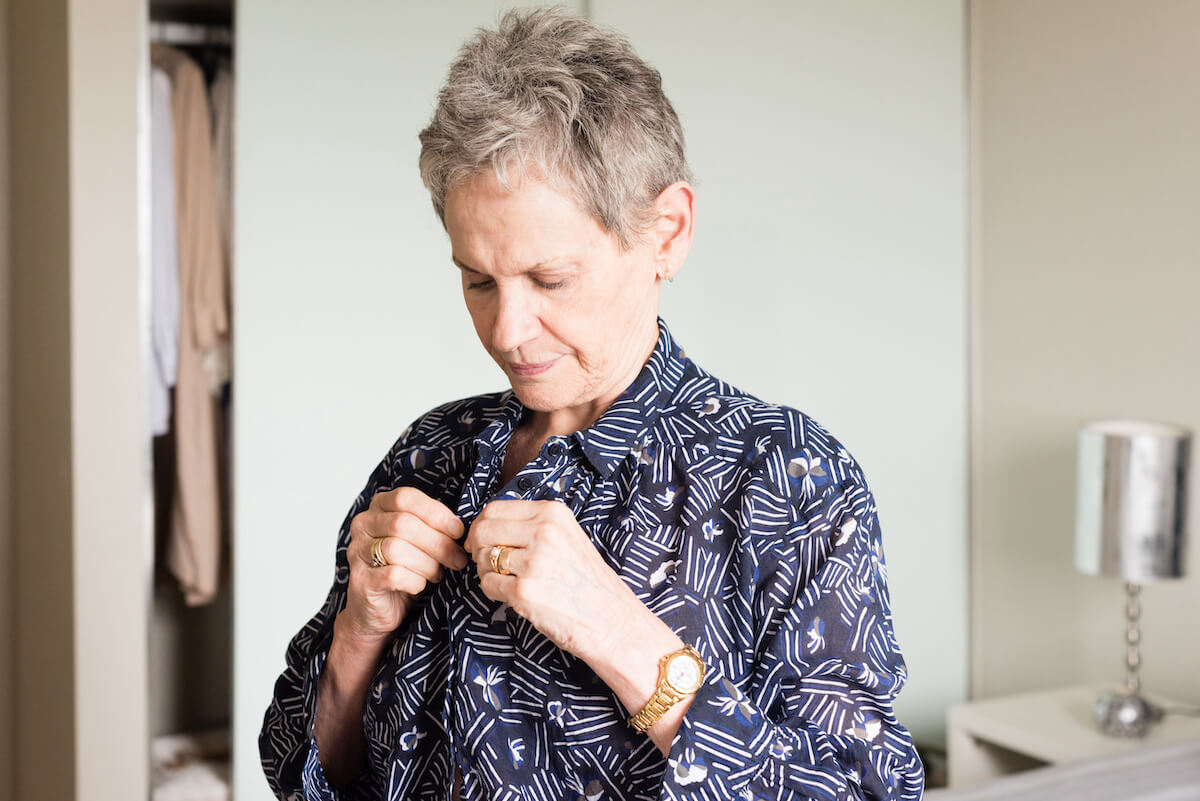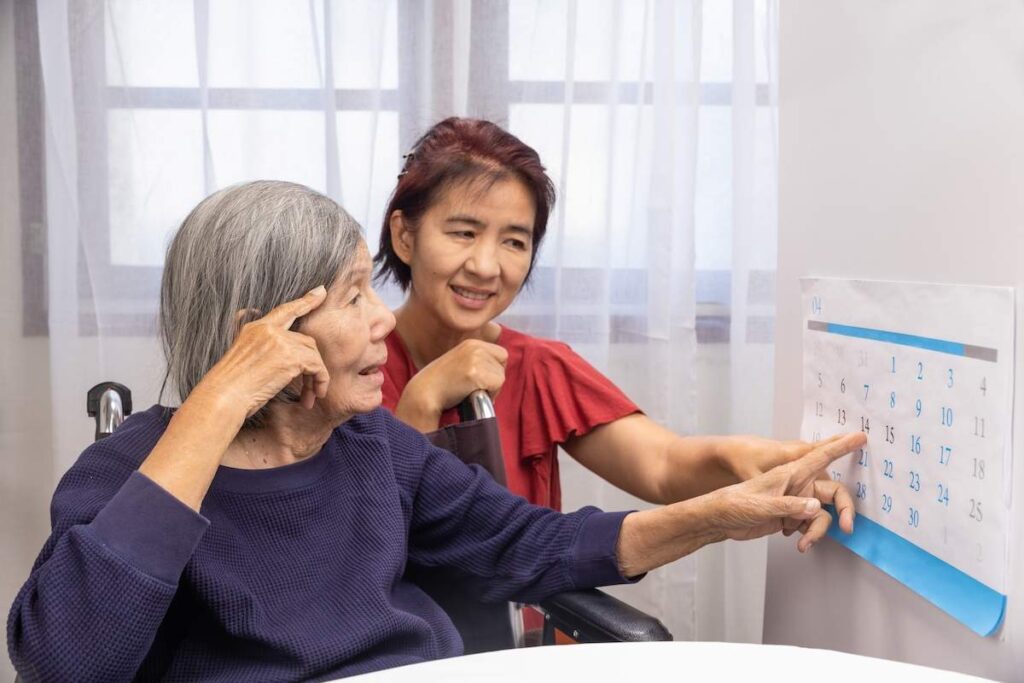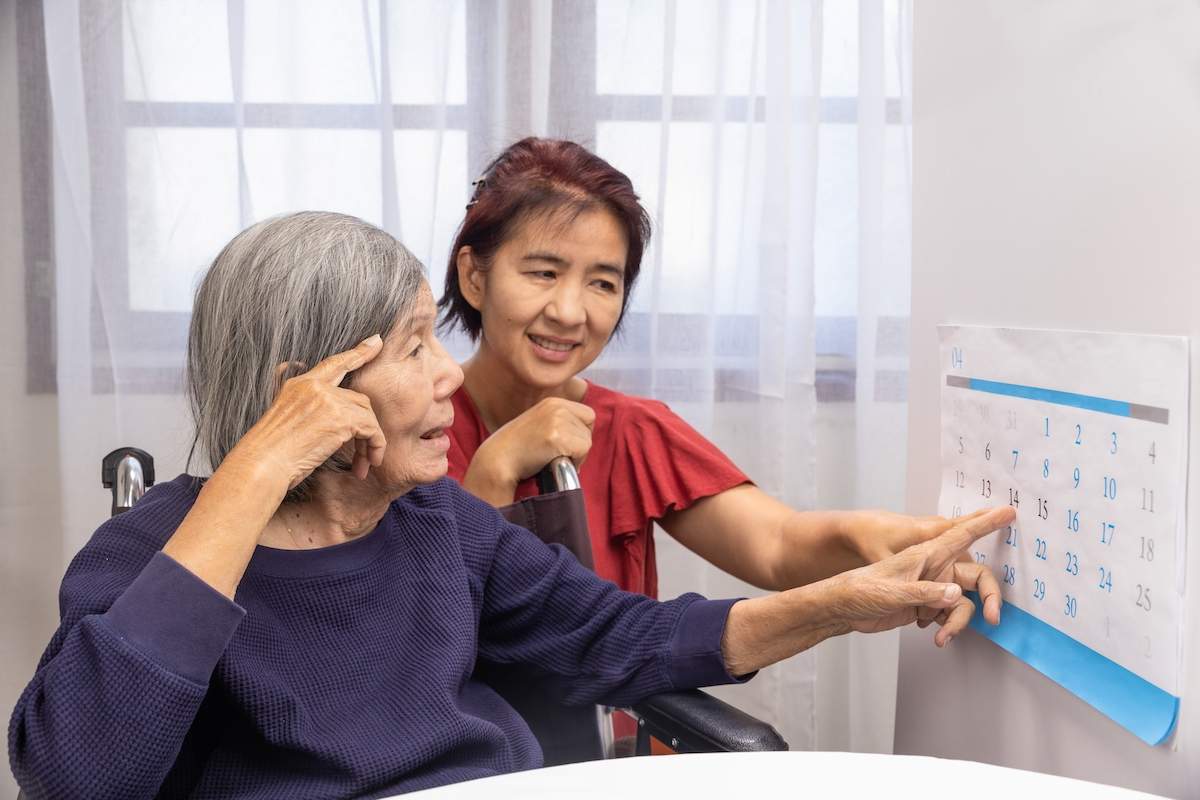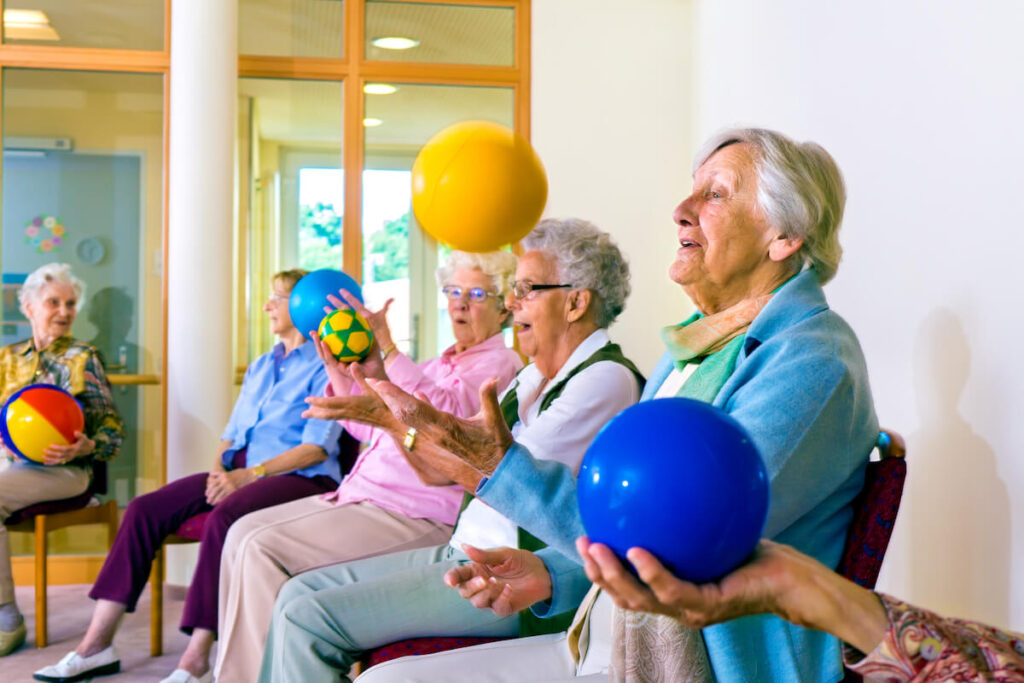What Are ADLs and Their Connection to Independence?
Activities of Daily Living, also known as ADLs, are at the heart of senior living discussions. They represent the core tasks that define our daily self-care and are essential for maintaining independence. However, these basic activities can pose challenges as we go through life, threatening our self-sufficiency.
The Monarch Senior Living is exploring the significance of ADLs, the impact of aging on these vital tasks, and how assisted living & memory care communities can provide crucial support for preserving independence with dignity.
First Things First, What Are ADLs?
Consider the daily routine of getting ready in the morning. For many individuals, and in particular older adults, this can involve multiple hurdles. For instance, arthritis might make buttoning a shirt or tying shoelaces a challenging process, poor balance can turn the act of stepping into a bathtub into a risky endeavor, and even the development of conditions like Alzheimer’s disease can complicate every aspect of daily living from bathing to eating. These examples illustrate how tasks, once taken for granted, can become barriers to independence.
At its core, activities of daily living refer to the basic personal care tasks crucial for self-care. Let’s take a look at the six most common activities of daily living, which include:
- Bathing: Properly washing one’s body and face.
- Dressing: Choosing and putting on appropriate clothing.
- Eating: The ability to feed oneself.
- Transferring: Safely moving from one place to another, such as from a bed to a chair.
- Grooming: Refers to personal hygiene habits such as brushing one’s teeth and hair, shaving, and more.
The significance of activities of daily living is rooted in their direct linkage to an individual’s autonomy. The capacity to carry out these essential day-to-day tasks without assistance is intrinsically connected to the liberty to lead one’s life based on personal terms and preferences. Successfully managing ADLs can dramatically enhance an individual’s self-confidence and sense of independence, ultimately contributing to a more fulfilling and self-sufficient lifestyle.
As mentioned before, various physical and cognitive changes can affect our ability to perform ADLs independently. Factors such as decreased mobility, diminished strength, impaired memory, or chronic health conditions play significant roles.
How Assisted Living & Memory Care Help with ADLs

Even though ADLs can become more challenging with age, assisted living and memory care communities can help through varying levels of care and support.
Choosing an assisted living and memory care community like The Monarch Senior Living offers multifaceted benefits for individuals facing difficulties with daily living tasks.
Personalized Care and Support
Each resident receives a care plan tailored to their specific needs and preferences, ensuring they get the right level of assistance while fostering as much independence as possible. This personalized approach helps individuals manage ADLs effectively, improving their overall well-being.
Safety and Security
Assisted living and memory care communities are designed with residents’ safety and security in mind. Features like accessible bathrooms, emergency call systems, and 24-hour access to community team members provide families with peace of mind, knowing their relative is well cared for in a secure setting.
Social Engagement
Living in a community setting encourages social interaction and engagement, which are vital for maintaining mental health. Individuals have opportunities to participate in group programs, social events, and shared meals, combating isolation and loneliness.
Nutrition and Wellness
Nutritious meals are provided, taking into consideration each resident’s dietary requirements and preferences. Additionally, many communities offer fitness programs designed to enhance mobility, strength, and overall health, which are crucial for managing ADLs.
Freedom from Home Maintenance
Transitioning to assisted living or memory care frees individuals from the challenges of home maintenance and chores, allowing them to focus on enjoying life and engaging in programs they love. This newfound freedom can significantly enhance their lifestyle and reduce stress.
Access to Medical Care

Many assisted living and memory care communities offer easy access to medical care and medication management. This is especially beneficial for individuals with chronic conditions that affect their ability to perform ADLs, ensuring they receive proper medical attention and adhere to their treatment plans.
—
At The Monarch Senior Living, our communities aim to empower and enrich each resident’s lifestyle, providing the right amount of support with ADLs, anticipating their needs, and embracing their independence. We offer assisted living and memory care throughout Texas and Nevada, with each of our communities having a unique style and features while delivering the same unparalleled quality care services.
Contact us today to discover all the benefits of a graceful and dignified retirement lifestyle.













